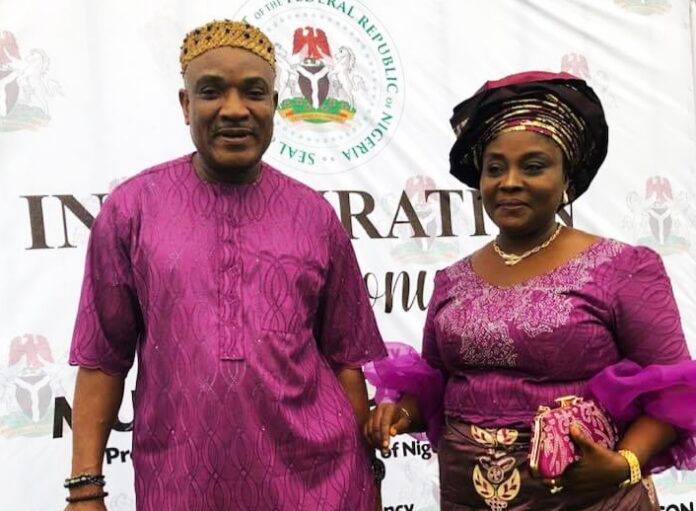Okoi Obono-Obla a traditional ruler in Ugep in Cross River and Nigerian statesman has explored the place of women in a typical African society.
In his piece, WOMEN ARE PARTNERS IN DEVELOPMENT, Obono-Obla argues that most African cultures are matrilineal; for him, it’s the West that is sexist and patriarchal.
Excerpt:
I have absolute respect for women. Women are sacred, and they are the special gift the Almighty God has given us to sustain humanity’s fountain. God created man and woman equally. A woman complements the man, and vice-versa (men complement women)/.
The concept of gender equality has its root in the Holy Bible in Genesis 1:26-27. ” And God said, let us make man in our image, after our likeness and let them have dominion over the fish of the sea, and over the fowl of the air, and over the cattle, and over all the earth, and over every creeping thing that creepeth upon the earth. So God created man in his own image, in the image of God created he him; male and female created them”.
It is, therefore, not farfetched why most African cultures are matriarchal. One such African culture is the Ekoi (Yakurr) People of Cross River State of Nigeria and the Republic of Cameroons. Among the Yakurr, the concept of matrilineality is of fundamental importance to the extent that it is a structural pillar and prop of social hierarchy.
In Ugep, there are 12 Matrilineal Families headed by Male Priests. These Priests are heads of the fertility shrines, considered the fountain of female members of such families’ female reproductivity. The leadership of a maternal family’s fertility shrine by a male underscores the equality of the sexes and harmony. So every child belongs to both his Paternal and Maternal Families.
However, if a man marries a relation from his maternal family, the children will belong to the same maternal family both his parents belong. Conversely, if a man marries a woman who is not a member of his maternal family, the children will belong to their mother’s maternal family. Therefore, mothers often encouraged their male children to marry women outside Ugep because such union products belonged to the father’s matrilineal family.
The matrilineal culture of Ugep occupies such priority to the extent that in the days of yore when a man dies, all his household properties are inherited by his maternal relatives such as his nieces and nephews, cousins, and distant cousins from his maternal family to the total exclusion of his children (save when they belong to his matrilineal family).
However, in modern times the impression is created erroneously that African cultures are patriarchal. This impression is not correct. Sexism and patriarchal leanings are a western social phenomenon, not African.
Coming from a cultural heritage that places women in such a central position, my position is that Women are Equal to Men. Women and Men are not rivals or competitive but equal partners who should cooperate/ work harmoniously towards advancing human civilization. Both sexes need each other, and none is superior to the other.










